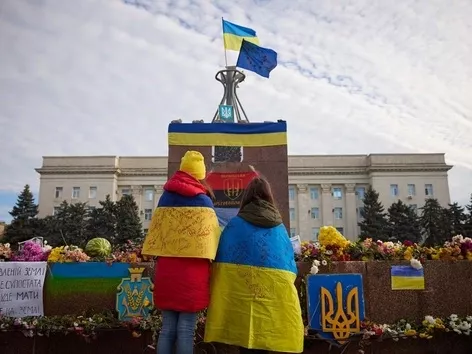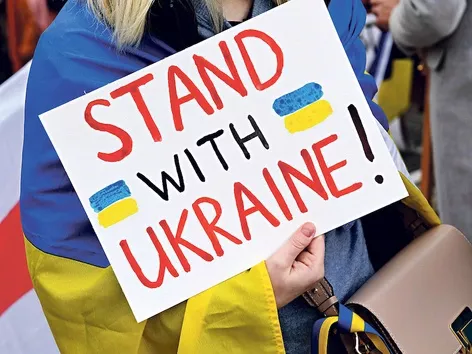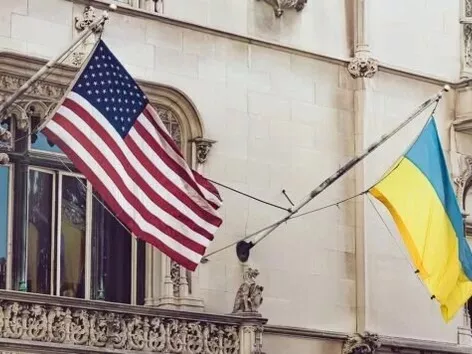What it's like to return to flooded homes and live under shelling: a survey of Kherson residents
Table of contents
- Is it worth returning home: the opinion of Kherson residents
- What problems do Kherson residents consider to be the most acute?
- Priorities for the restoration of Kherson: opinion of the local population
- Who do Kherson residents trust?
- What sources do Kherson residents use to get information?
- Do Kherson residents receive all the information they need?

Experts conducted a survey among residents of the Kherson city community about their attitude to the current situation in the region. Find out what Kherson residents think about the main problems of the city, local authorities and the media
The Kherson Community Foundation "Zakhyst" commissioned a survey among Kherson residents over the age of 18. Local residents were asked about the most pressing problems they face. It also revealed who Kherson residents trust the most and from what sources they receive information. Read more about the results of the survey below.
And if you want to learn more about the southern hero city, read interesting and unusual facts about Kherson in our previous article.
Is it worth returning home: the opinion of Kherson residents
According to published data, 52% of Kherson residents have not left the city, 39% have left but live in Ukraine, and 9% have moved abroad. At the same time, the overwhelming majority of Kherson's population believes that it is not yet time to return to the city:
— 41% - rather not
— 30% - definitely not
— 14% - difficult to answer
— 10% - rather yes
— 5% - definitely yes
At the same time, 61% of respondents plan to return to Kherson as soon as the shelling stops, 29% are already ready to return, 7% were not able to answer the question, and only 3% of respondents said they would not return home.
What problems do Kherson residents consider to be the most acute?
According to the surveyed residents of Kherson, the most important problems that need to be addressed as a matter of priority are the consequences of flooding the city after the Kakhovka hydroelectric power station dam was blown up. This is the opinion of 58% of respondents. Among other problems, Kherson residents identified:
— difficulties with employment - 53%
— unfair distribution of humanitarian aid - 47%
— untimely garbage collection - 42%
— stray animals - 37%
— problems with street cleaning - 35%
— difficulties with receiving medical care - 32%
— insufficient number of shelters and bomb shelters - 31%
— power outages - 18%
— water cutoffs - 11%
— gas cut-off - 9%
— lack of cable internet - 9%
— curfew is too long - 5%
— other - 8%
— difficult to answer - 5%
Priorities for the restoration of Kherson: opinion of the local population
According to the survey, the highest priority is the restoration of destroyed houses - 79% of respondents said so. In addition, residents of Kherson believe that the first priority is to restore
— the operation of medical facilities - 62%
— the operation of industrial enterprises - 61%
— flooded streets - 57%
— schools and kindergartens - 46%
— roads - 46%
— work of service sector institutions - 35%
— shelters and bomb shelters - 30%
— cultural life - 19%
— cable Internet - 16%
— other - 4%
— difficult to answer - 2%
Visit Ukraine on social media: Telegram | YouTube | Instagram | Facebook | Twitter | TikTok
Who do Kherson residents trust?
According to the published data, Kherson residents trust the military the most, with 59% (fully trust) and 31% (rather trust) of respondents saying so. By the way, this trend continues throughout Ukraine. Read more about whom Ukrainians trust the most and, conversely, do not trust at all here.
The second place is occupied by the State Emergency Service (56% and 31%), and the third place is occupied by local volunteers (41% and 44%). Kherson residents show the lowest level of trust in the city military administration (6% trust, 25% do not trust at all).
At the same time, 91% of Kherson residents know the head of the Kherson Military Administration, Oleksandr Prokudin, but only 7% of residents trust him. The situation is similar with other representatives of local authorities:
— Roman Mrochko - 59% know, only 1% trust
— Yuriy Sobolevsky - 44% know, 3% trust
— Samoilenko Oleksandr - 26% know, 1% trust
What sources do Kherson residents use to get information?
The vast majority of Kherson residents (91%) use Telegram channels to receive information about life in Kherson. At the same time, 60% of respondents communicate with friends and family to keep track of current events. Among other sources of information, the locals highlighted:
— Websites - 31%.
— YouTube channels - 26%
— Facebook - 23%
— groups on Viber - 23%
— television - 22%
— other - 4% (Instagram and personal experience)
It is worth noting that Ukrainian television almost does not work in Kherson, which means that only russian channels and news are broadcast.
Do Kherson residents receive all the information they need?
43% of Kherson residents surveyed said they lacked information about the activities of local authorities. In addition, Kherson residents reported insufficient information about
— addresses and organizations to contact for humanitarian assistance - 36%
— addresses of open institutions and shops - 31%
— public transportation schedules - 25%
— working hours of hospitals and doctors - 23
— addresses of bomb shelters and shelters - 21%
— telephone numbers of public utilities - 16%
— contacts of volunteers - 15%
— phone numbers and organizations that help with evacuation - 5%
— other - 2%
At the same time, 13% of Kherson residents do not need such information, and only 11% said they have enough information.
Kherson and the local residents have withstood the occupation, flooding and continue to suffer from russian shelling on a daily basis. We believe that soon the south of Ukraine will be liberated from the russian invaders and the hero city will finally be able to breathe deeply. We will stand! We will win!
We remind you! In August, the world celebrates the International Watermelon Day, but for Ukrainians, this date has a special meaning. Read more about why Kherson watermelons have become a national symbol of Ukraine and what is happening to the region's agricultural sector today in our previous article.
Photo: President of Ukraine
You may be interested in:
Visit Ukraine Donation - make a good deed and an important contribution to the Victory of Ukraine;
Visit Ukraine Legal advice - comprehensive legal support on entry to Ukraine;
Visit Ukraine Tours - the largest online database of tours to Ukraine for every taste;
Visit Ukraine Merch - choose patriotic clothing and accessories with worldwide delivery;
Visit Ukraine News - get the latest news and updates in our Telegram channel;
Cooperation - cooperation and advertising integrations with Visit Ukraine and Visit World projects.
Recommended articles
2 min
Popular
What foreigners buy in Ukraine: how symbols of Ukrainian resilience have replaced ordinary souvenirs
In the past, foreigners most often bought small souvenirs to remember Ukraine, but today the demand has grown for a different category of goods. Find out what foreigners are buying in Ukraine and what is the reason for these changes
31 Jul. 2023
More details3 min
Popular
US elections in 2024: which candidates do not support Ukraine?
Joe Biden is currently leading the field of candidates for the US presidency in 2024, but the situation can change at any time. Find out how voters feel about Ukraine and which of them are against supporting the country
03 Aug. 2023
More details2 min
Events
Repair Together: How to join the Building Toloka Camp in Ukraine to rebuild destroyed housing?
An international construction camp has started in Chernihiv Oblast, where volunteers from all over the world can join in the reconstruction of housing destroyed by russia. Find out what is special about this initiative and how to become a participant of the camp
04 Aug. 2023
More details2 min
Popular
Sociologists have found that there is a gap between Ukrainians and russians in their attitudes toward the russian dictator Stalin. Find out how the dynamics of attitudes changed between 2012 and 2023 and why Ukrainians and russians have nothing in common
04 Aug. 2023
More details

